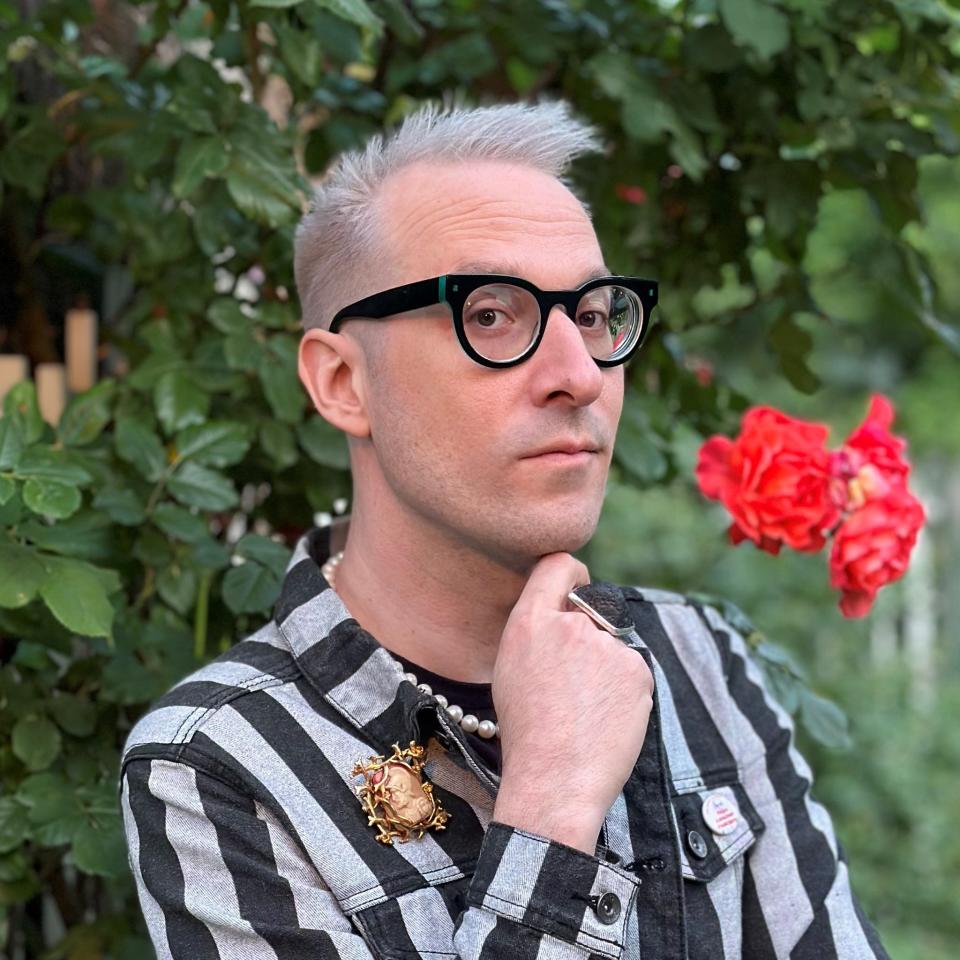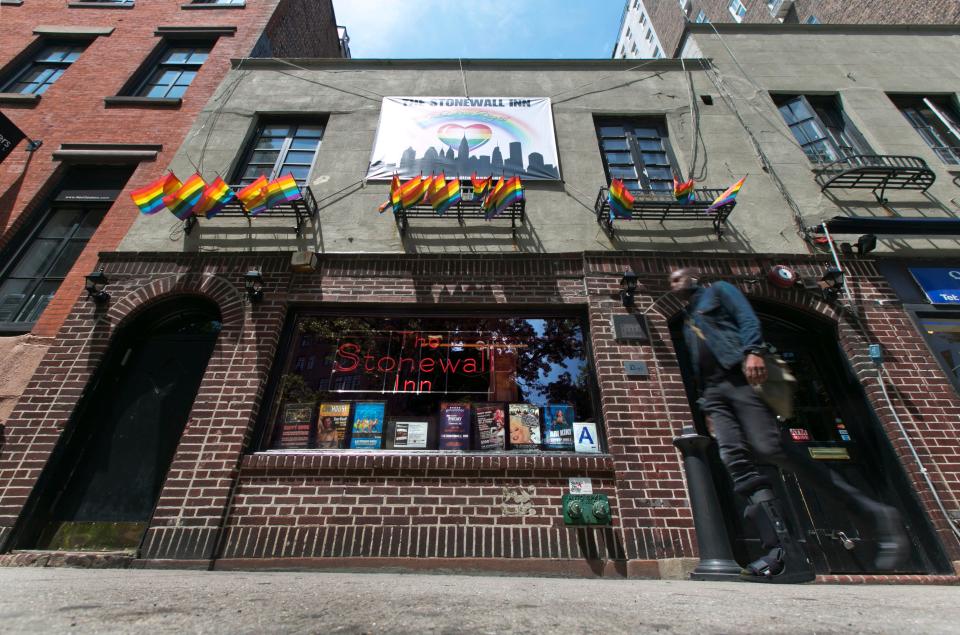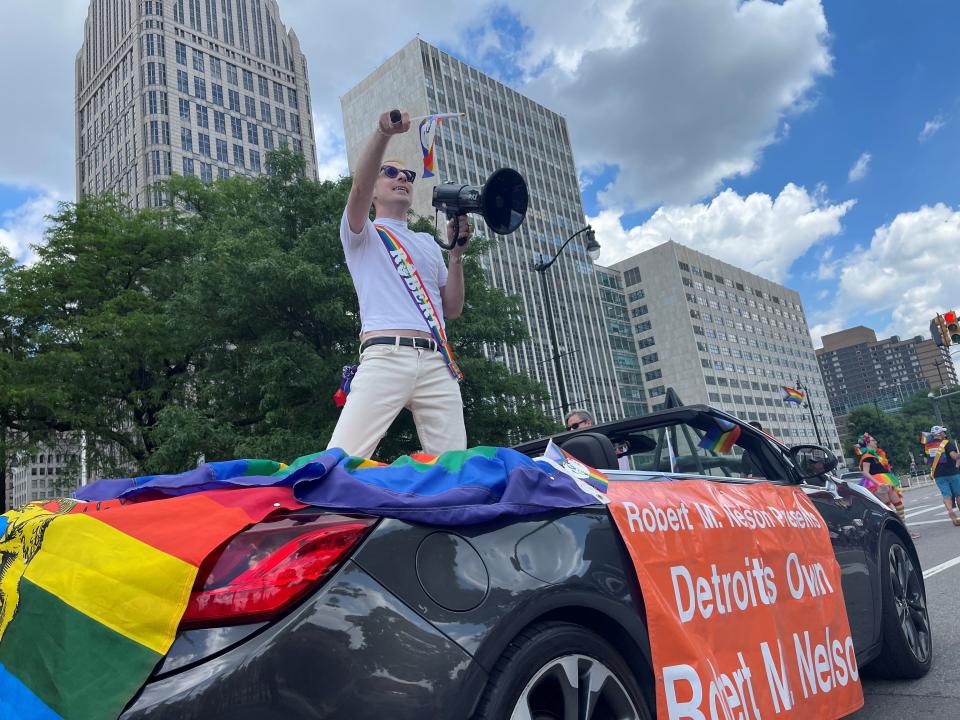Opinion: LGBTQ+ pride is being diluted by corporate rainbow washing
I’m Robert M. Nelson, and every year since 2011, when Motor City Pride moved to Detroit and revived the decades-old tradition of a gay pride parade, I’ve hosted my own float.
I’m not a charity or a business or a corporation, just a queer cis male who loves a parade, and supporting other LGBTQ+ humans. But that puts me in the minority at Pride these days.
Pride started with a subversive act of violence, but visit Pride this weekend — set for June 10 and 11 in downtown Detroit — and you’ll see more corporate logos than anything else.

As a queer man who strives for equality, I appreciate the sentiment. But ultimately, there’s too much show and not enough substance. In these uncertain times of renewed political attacks on queer people, we need more than a rainbow flag flying in the wind. We need corporations to listen to, support and make space for LGBTQ+ folks to live as our authentic, human, selves.
Pride is so many things for different people — a time of reflection, a time to memorialize, a time to celebrate, a time to reconnect, a time to show off new outfits. Really, I can’t thank the organizers of Motor City Pride enough for putting it on, and giving me the space to celebrate and criticize.
More: Opinion: Hate and disrespect puts transgender, non-binary Michiganders at risk
More: Opinion: I’m a Michigan-born LGBTQ teen living in NYC. I don’t want to come back.
Gay Pride started with a riot. Queer people were tired of being marginalized — hated, beat-up, thrown in jail or institutionalized for being gay. In 1952, in its first publication of the Diagnostic and Statistical Manual of Mental Disorders, the American Psychiatric Association listed homosexuality as a sociopathic personality disturbance. In 1953, President Dwight D. Eisenhower signed American Executive Order 10450, banning homosexuals from working for the federal government or any of its private contractors. Many states criminalized gay sex, until the U.S. Supreme Court declared such laws unconstitutional in 2003. (In Michigan, those laws are still on the books.)

On June 28, 1969, police raided the Stonewall Inn, a gay bar in Greenwich Village, something they did a lot back in those days. Someone, in some accounts a Black trans person, threw a brick at the raiding officers — and with a crash, the modern gay rights movement began. That's why we celebrate Pride every June.
I wasn’t yet born, but 30 years later as a teen in the late 1990s, I knew LGBTQ folks still had a long way to go. By then, through protests, meetings, marches and gay and queer people living their authentic lives in public — even amid threats of violence and loss of livelihood — society’s perceptions about queer folks were shifting. Entertainment and corporations soon followed suit.
Gays were an untapped market ready to spend, and corporations were eager to win our dollars. First it was a trickle of advertising, from businesses like Absolut, IKEA and famously Subaru with their “XENA LVR” license-plated cars in ads in 1996. ("Xena: Warrior Princess," the 90s adventure series starring Lucy Lawless, was known for the romantic barely-sub-subtext between the two main characters, the titular Xena and her doting blonde sidekick Gabrielle. In a time of little to no gay or lesbian representation on television, it was a much-watch for queer teens and adults alike.)
As a teenage Xena lover myself, still far too young to drink vodka or buy furniture, I felt seen, something that I hadn’t been by media or commercial advertisements ever before. Every year, I’d snap up a copy of PrideSource's gay Yellow Pages, and gladly support any and every advertiser I could.

At first, it seemed incredible — in a time when queer folks were unable to marry, unable to be out in the military or in many workplaces, unable to live openly without risk of violence, suddenly there was representation in niche media, and soon after, the mainstream. Now I was worth marketing to.
As time went by, and more and more corporations realized they, too, could tap into the gay market, my joy at this recognition was tempered. Sure, some businesses truly supported LBGTQ+ folks throughout their corporate structures, but many were merely rainbow washing. Like "white washing," "rainbow washing" means slapping a coat of gay pride on your business without doing anything substantial to support LBGTQ+ humans. Talking the talk, during June at least, but not walking the walk.
At Pride, once a grassroots effort, local LGBTQ- and ally-owned businesses were replaced by corporate sponsors. Like in many things, as corporations took over, they promoted a sort of upper-middle class, homogenized queer lifestyle, not the diverse and locally flavored life that is the truth for many LBGTQ+ Americans — in some cases, the same corporations that a generation ago would fire someone for being gay, and that sometimes still support politicians who don’t believe in the right for LGBTQ+ humans to exist. Corporations that don’t have LGBTQ+ representation in their C-suites, that gladly take local LGBTQ+ money and even more gladly spend it elsewhere.
Corporations do have the power to help. For about a decade, many Michigan businesses supported the expansion of Michigan's Elliot Larsen Civil Rights Act. In a victory just last March, the change was signed into law by Gov. Gretchen Whitmer, reaffirming legal protections for sexual orientation and expanding coverage to include gender identity and expression.
I am thankful for that. Putting on an event like MotorCity pride is an immense amount of work, and it sure isn’t cheap. Without the hundreds of incredible volunteers, local businesses and, yes, corporate sponsors, the event we have today would not be possible. So I'm grateful for that, too. But like the queen that threw the first brick at Stonewall, we LGBTQ+ people who are consistently ourselves must continue to fight for our future, for the right to be queer and free.
Even as Pride is diluted by corporate rainbow washing, being queer in America is still a subversive act. Anti-trans and anti-drag bills are turning the clock back to those scarier days of fear, and we need those corporations to fight those bills, and to make sure their money doesn't fund the campaigns of politicians who support them.
How an LGBTQ+ person lives their life is Pride, not driving the right car or drinking the right booze or being sponsored by a bank with great pens.
And always remember — corporations are not Pride, you are Pride.
Robert M. Nelson can’t wait to share a button, a joke and the joy of a parade with you. Contact the Free Press opinion page: freep.com/letters
This article originally appeared on Detroit Free Press: Opinion: At Motor City Pride, corporate rainbow washing dilutes pride

